The COTs Problem
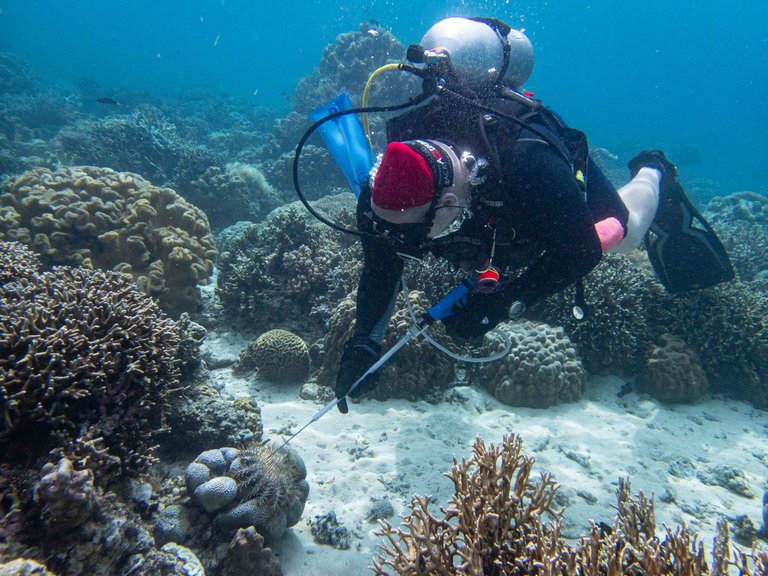
Introduction
Similar to fish, algae and shells, Crown of Thorns Starfish ( Acanthaster planci ) abbreviated as COTs, are reef inhabitants that plays an important role in balancing the dynamics of a coral reef ecosystem. However, with the population decline of their natural predators like the triton’s trumpet shell coupled with environmental triggers such as the warming of seawater temperature that enhances their larvae development ( Uthicke et al., 2005 ), the population of COTs has exponentially increased causing a worldwide outbreak.
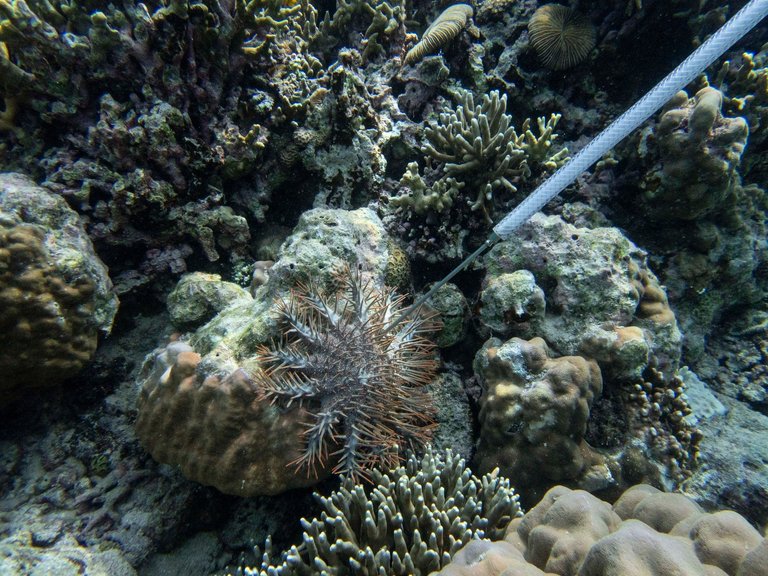
Similar to fish, algae and shells, Crown of Thorns Starfish ( Acanthaster planci ) abbreviated as COTs, are reef inhabitants that plays an important role in balancing the dynamics of a coral reef ecosystem. However, with the population decline of their natural predators like the triton’s trumpet shell coupled with environmental triggers such as the warming of seawater temperature that enhances their larvae development ( Uthicke et al., 2005 ), the population of COTs has exponentially increased causing a worldwide outbreak.
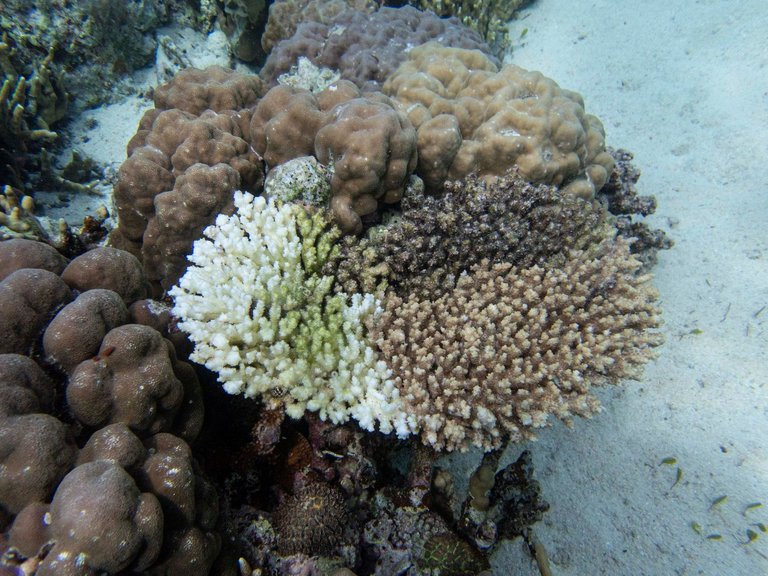
Despite all the damages caused by the outbreak of COTs, it is not the end of the line for our coral reefs. Humans, particularly certified scuba divers, can take part in controlling the COTs population bloom through manual extraction or injection of vinegar which is proven to be fatal for COTs and not to the corals. However, handling COTs has its inherent dangers as this particular type of starfish is venomous. You should take note that COTs naturally contain a chemical toxin called saponins that are mostly concentrated on the spine. Although COTs do not have any form of physical mechanism to inject the venom, the chemical toxin can be released during accidental handling causing the venom to enter the human body through the skin. In effect, it can cause immediate pain to the affected area which can last for hours and the unlucky person may suffer from skin swelling and nausea.
With the need to control COTs population worldwide without causing further damage to the reef plus the inherent dangers in handling them, PADI will answer to this need by offering a full speciality course and will be coined “ The PADI Crown of Thorns Distinctive Specialty Diver Course” where every certified scuba diver will have a chance to enhance their knowledge and skills particularly in managing a COTs outbreak while safely handling them.
The PADI Crown of Thorns Distinctive Specialty Diver Course is in line with PADI Project AWARE ® where it fully supports its priority global plans and programs, particularly in item (1) which states that “ address the greatest threats facing the ocean. Those threats must be grounded in sound science ”
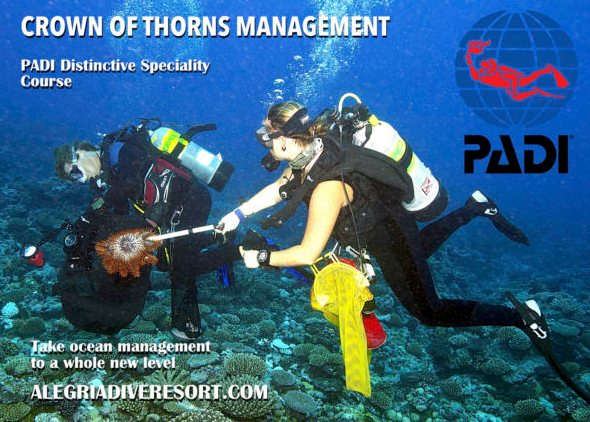
The purpose of the The PADI Crown of Thorns Distinctive Specialty Diver Course is to familiarize divers with the knowledge, skills, planning, equipment, organization, procedures, techniques, problems, hazards and excitement of diving to safely manage and extract COTs. Training should emphasize fun and safety.
Course Goals
The goals of the The PADI Crown of Thorns Distinctive Specialty Diver Course training is to:
Equip divers with knowledge about COTs, the causes of their outbreaks and the destruction it brings if an outbreak persists.
Equip divers with the methods on how to manage and safely extract COTs out of their environment.
Equip divers with the knowledge and skills on how to give first aid to a diver being stung by COTs.
Equip divers with a way to monitor the progress and impact of their COTs management efforts.
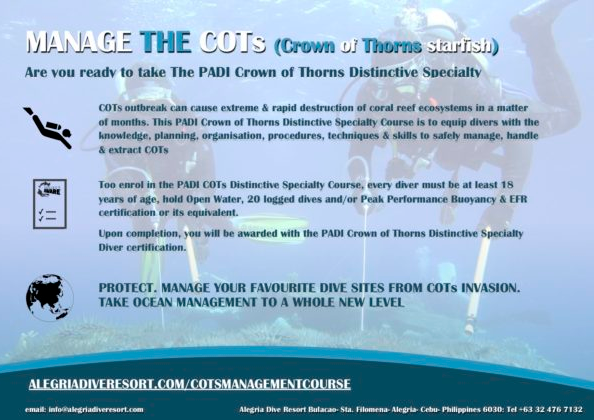
Student Diver Prerequisites
By the start of the course, a diver must be:
Certified as a PADI Open Water Diver or qualifying certification from another training organization.
Emergency First Response Primary and Secondary Care or qualifying certification from another training organization.
Certified as a PADI Peak Performance Buoyancy Diver or qualifying certification from another training organization and/or must have logged at least 20 dives.
At least 18 years old
The The PADI Crown of Thorns Distinctive Specialty Diver Course includes knowledge development, one confined water training session and two open water dives, which may be conducted in one day. Conduct dives during daylight hours. The Course will take approx 8 hours depending on the student.

Assessment Standards
The student diver must demonstrate accurate and adequate knowledge during the open water dives and must perform all the skills and procedures in managing and extracting COTs with little difficulty and in a manner that demonstrates minimal or no stress.
Certification
Upon completing the course, you will receive the The PADI Crown of Thorns Distinctive Specialty Diver Course.
Certification means that you will be qualified to plan, organize and make dives in conditions generally comparable to or better than, those in which you are trained.
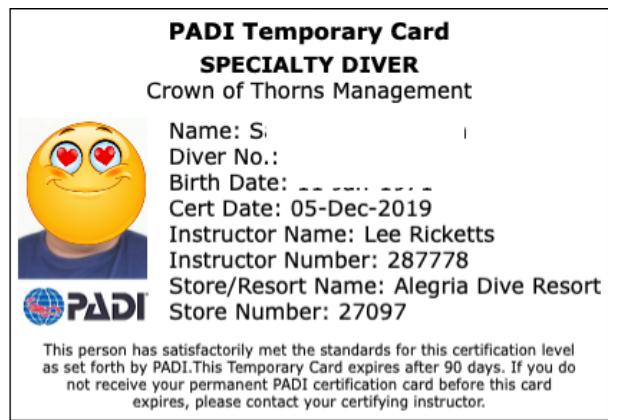
The The PADI Crown of Thorns Distinctive Specialty Diver Course was co-written with a marine biologist as a much-needed PADI Course due to the devastating effects that COTs can do to a Coral Reef if not managed correctly. Many Divers fail to understand the correct methods of controlling and managing COTs, in some case, they can make the situation even worse. The course was submitted and endorsed by PADI in August 2019
[Alegria Dive Resort](Alegria Dive Resort)
Is situated in Sta Filomena Alegria. Head south just 30km pass Moalboal and only 5km from the world-famous Kawasan Falls. Alegria Dive Resort is Cebu's Next big HOTSPOT. The secret is out amongst the Backpacking and scuba diving communities that no doubt Alegria Cebu is the next amazing destination in Cebu for thrill-seekers and adventurers alike. Sit and chill after an eventful day at our restro/bar area where one can watch the amazing sunset over Negros Island.